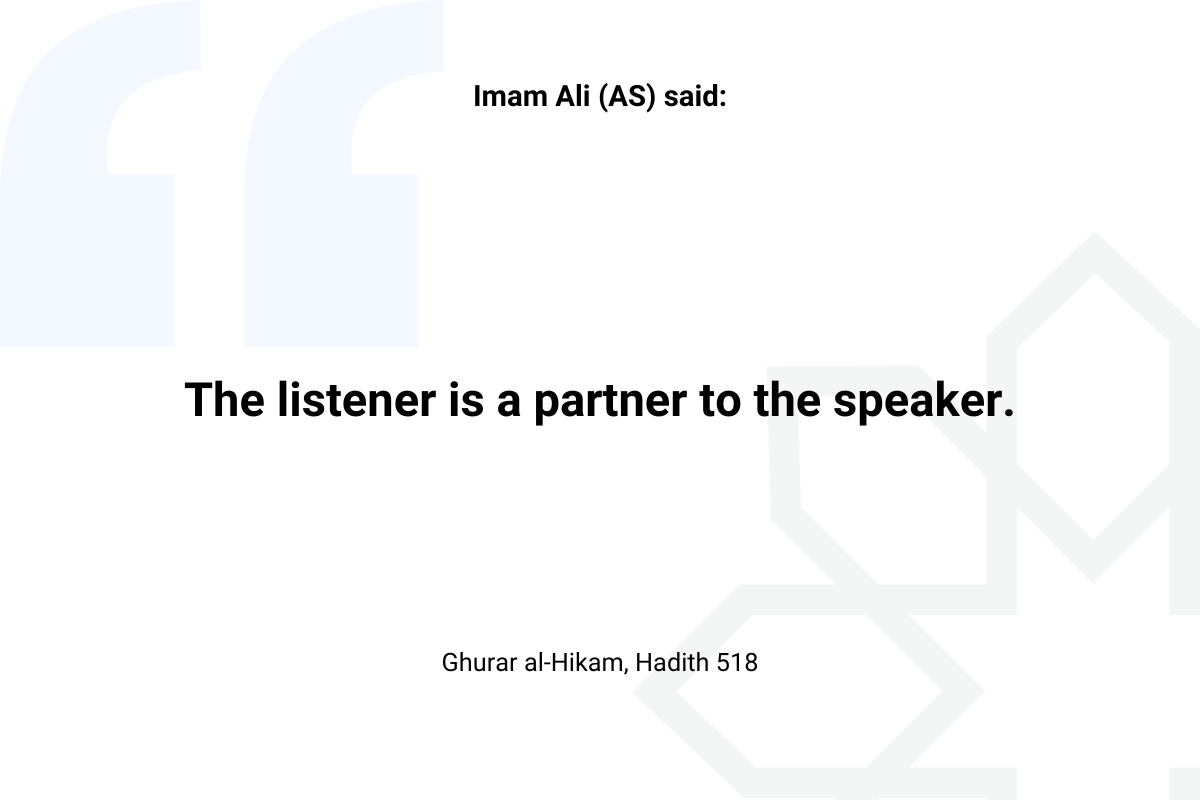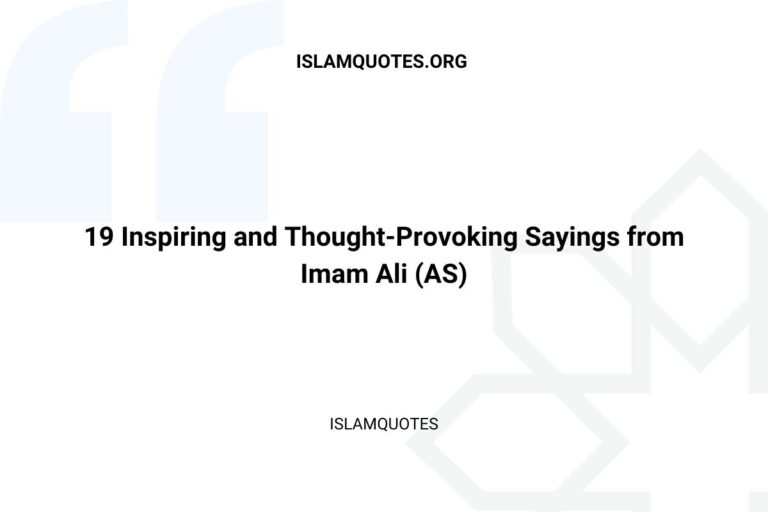Imam Ali (AS) said:
‘The listener is a partner to the speaker.’
– Ghurar al-Hikam, Hadith 518
The Importance of Active listener in Islam
Introduction
Listening is a fundamental aspect of effective communication and knowledge acquisition. In Islam, this virtue is highly emphasized, as reflected in the profound saying of Imam Ali (AS). This hadith underscores the interconnectedness between the speaker and the listener, highlighting the responsibility and influence of both roles. Understanding this principle is essential for fostering meaningful interactions and a cohesive community.
The Dual Role of Communication in Islam
The Responsibility of the Speaker
In Islamic tradition, the role of the speaker is not merely to convey information but to do so with wisdom and integrity. Scholars and educators bear the significant responsibility of ensuring that their teachings are accurate, beneficial, and aligned with Islamic principles. The Quran advises, “Speak a straightforward word” (Surah Al-Ahzab, 33:70), emphasizing the importance of clarity and truthfulness in communication.
H3: The Influence of the Listener
Imam Ali (AS) elevates the role of the listener by describing them as a “partner” to the speaker. This partnership implies that listening is an active process, requiring engagement, discernment, and reflection. A listener’s responsibility is not passive reception but involves critically evaluating and internalizing the message. The Quran praises those who listen attentively, saying, “So give good tidings to My servants who listen to speech and follow the best of it” (Surah Az-Zumar, 39:17-18).
Practical Applications of the Hadith
Enhancing Personal Growth
By adopting the principle that listeners are partners to speakers, individuals can enhance their personal development. Active listening fosters a deeper understanding of complex issues, encourages empathy, and strengthens relationships. In educational settings, students who actively listen are more likely to succeed and retain knowledge.
Building Stronger Communities
Communities thrive when both speakers and listeners fulfill their roles effectively. Respectful and attentive listening promotes mutual understanding and reduces conflicts. In community discussions, ensuring that every voice is heard and valued can lead to more inclusive and productive outcomes.
Broader Implications for Society
Promoting Constructive Dialogue
On a societal level, the partnership between speakers and listeners can bridge divides and foster unity. Constructive dialogue, where both parties are committed to understanding and respecting each other, can address societal challenges and promote peace. This approach aligns with the Islamic ethos of justice and compassion.
Encouraging Responsible Media Consumption
In today’s digital age, the principles of this hadith are particularly relevant. Media consumers should act as responsible listeners, critically evaluating the information they receive and avoiding the spread of misinformation. By doing so, they contribute to a more informed and ethical society.
Conclusion
Imam Ali’s (AS) hadith offers timeless wisdom on the importance of active listening and responsible speaking. By recognizing the listener as a partner to the speaker, we can foster a culture of mutual respect and understanding. This principle is not only vital for personal growth but also essential for building strong communities and promoting societal harmony. For more inspirational Islamic quotes, including daily hadiths and motivational sayings, explore our comprehensive collection.








